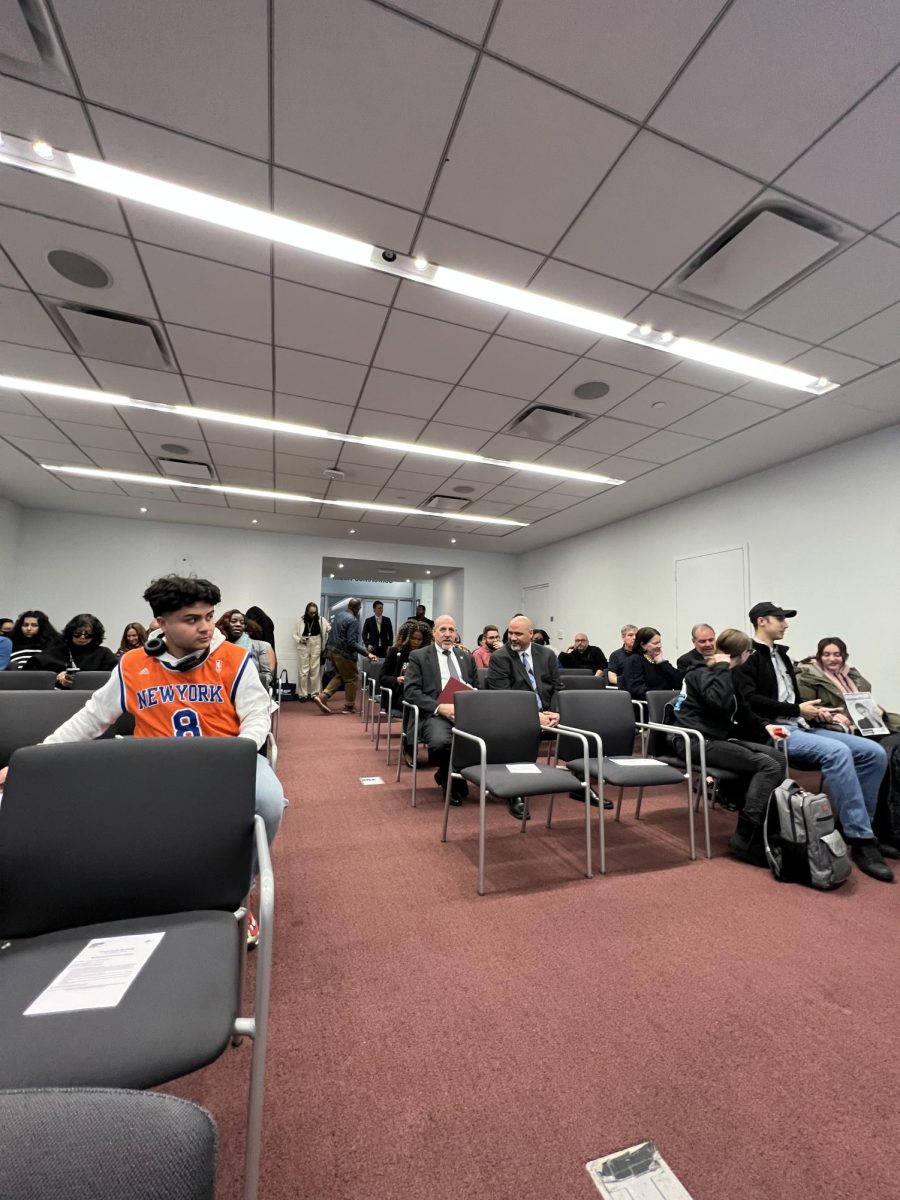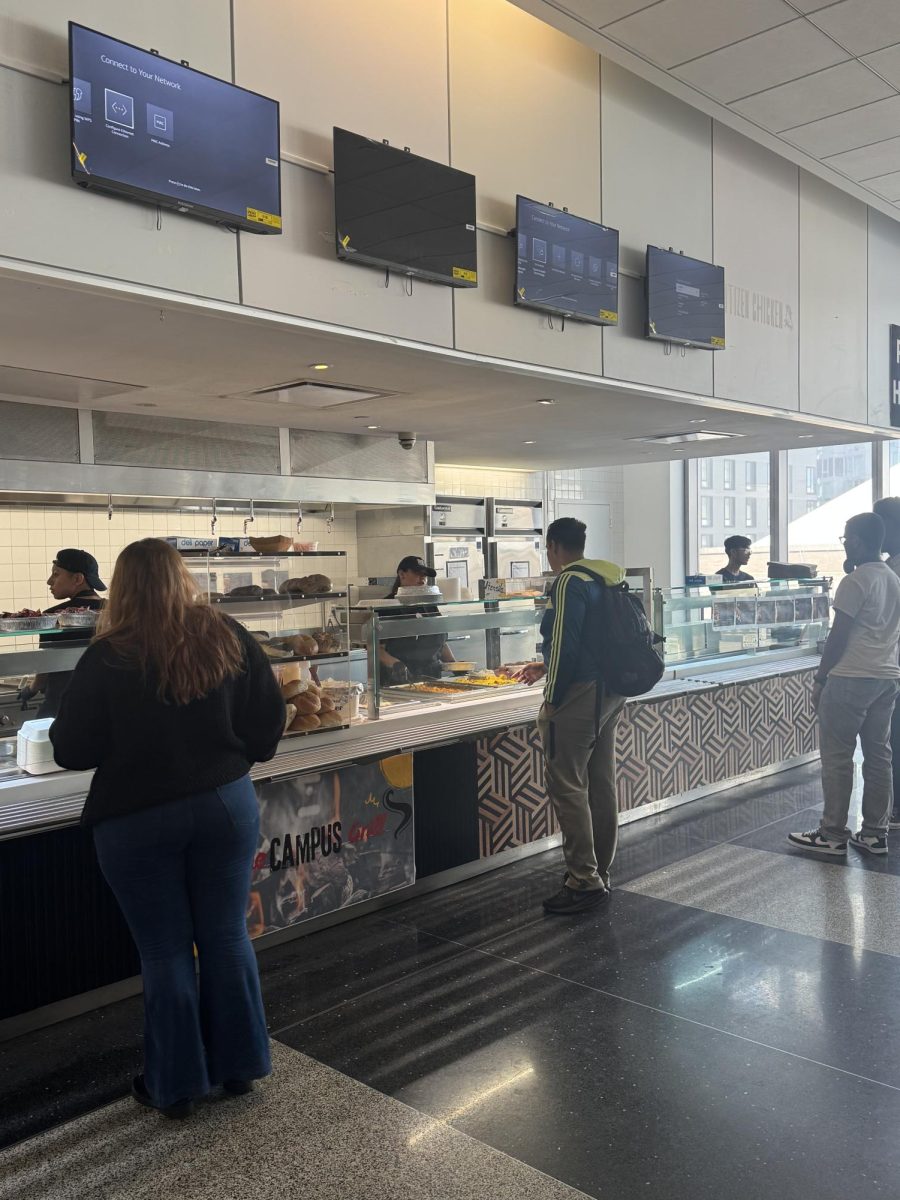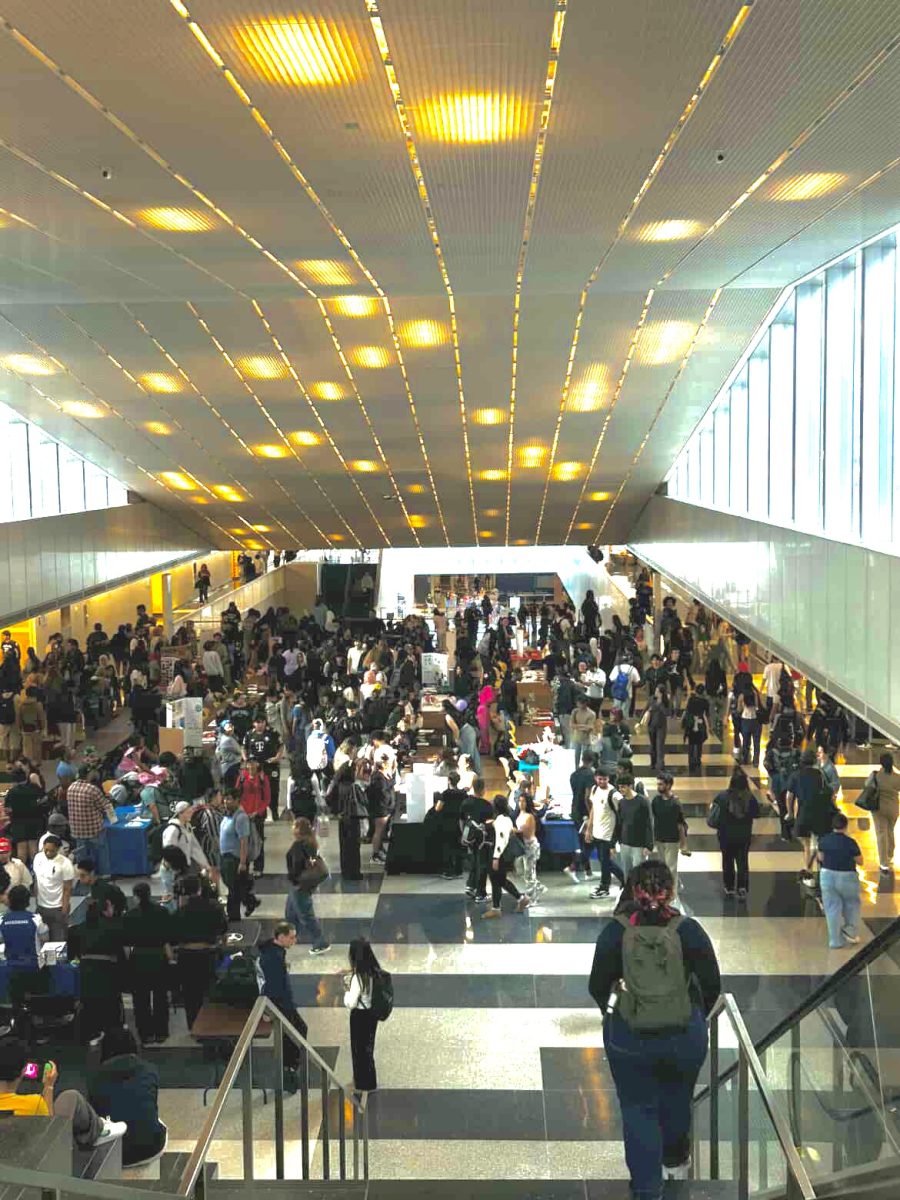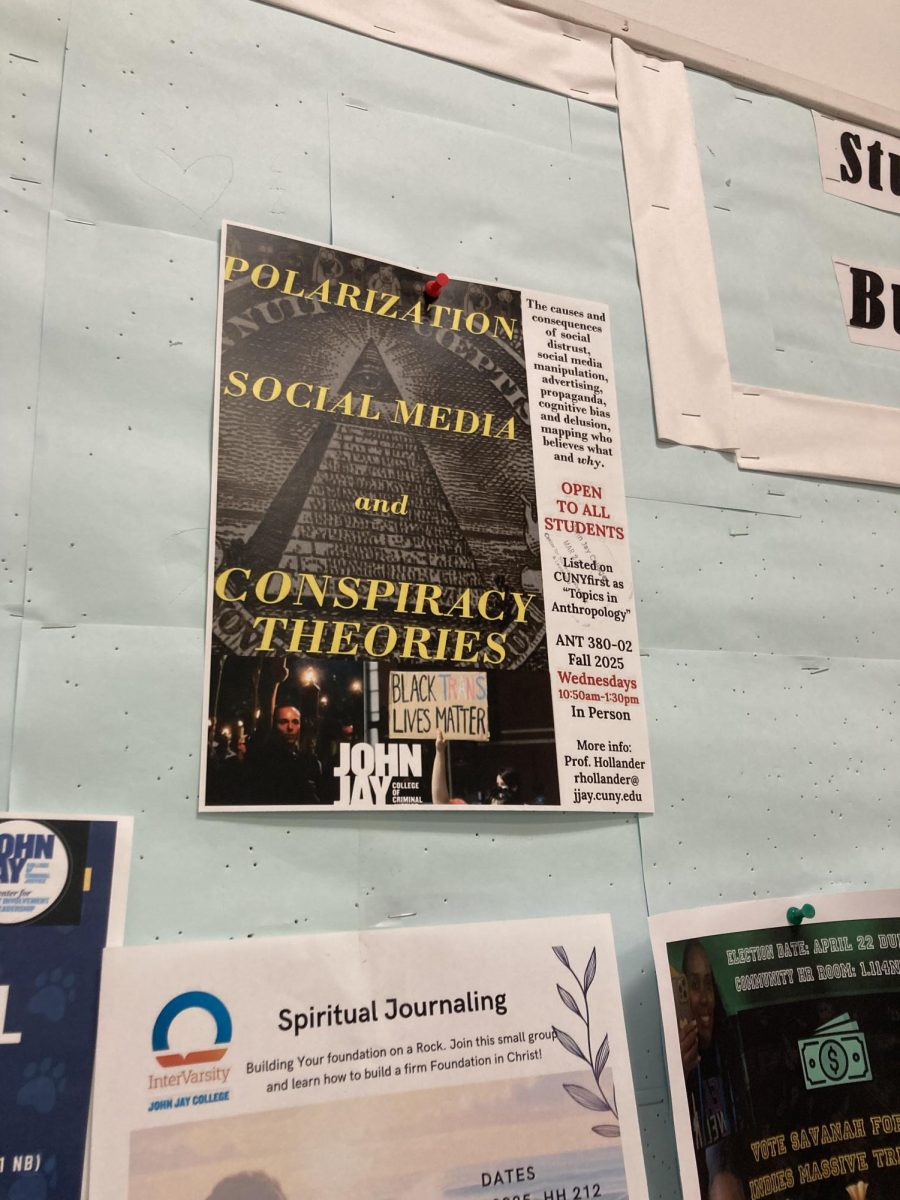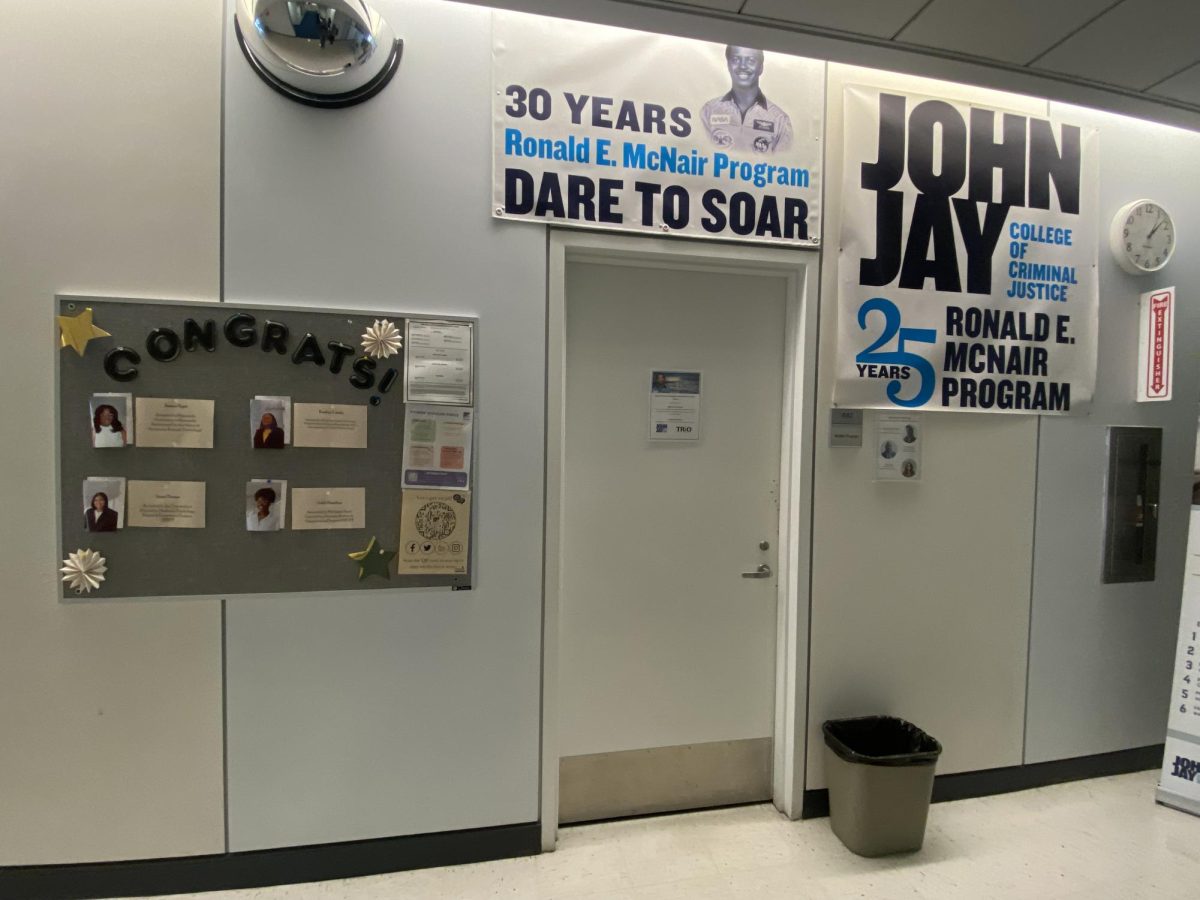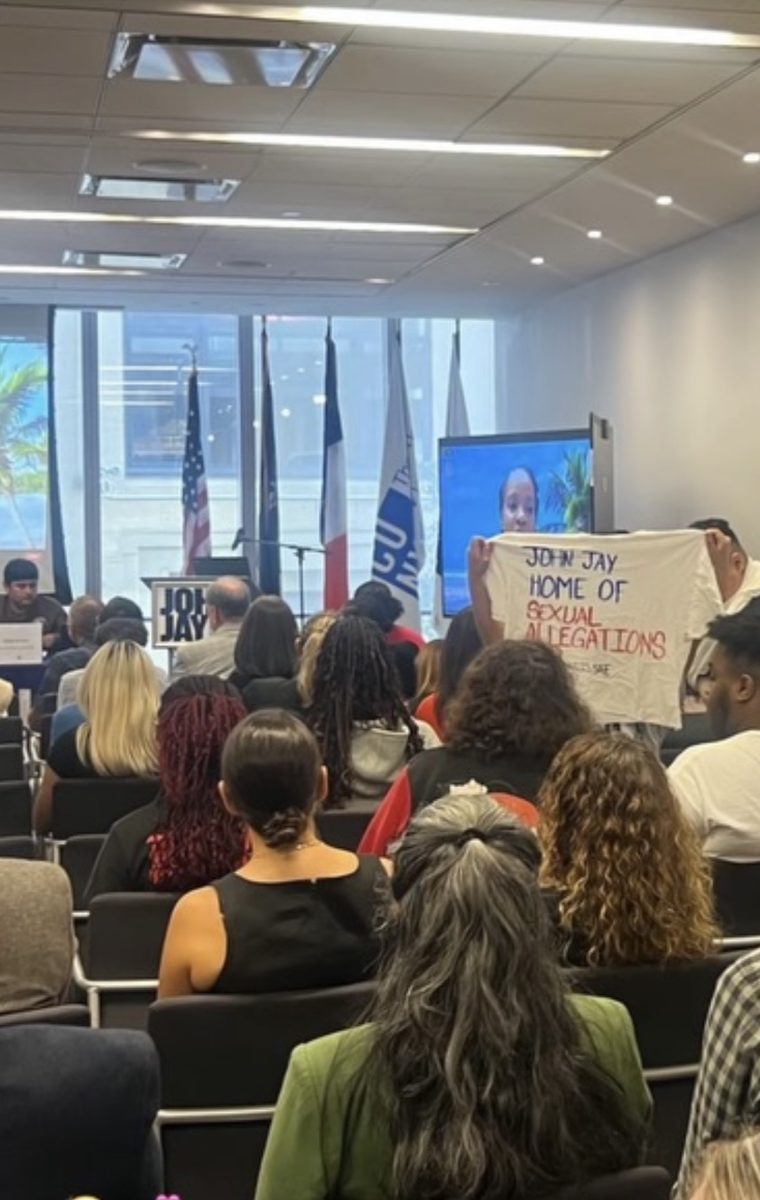Chairs in L.61 are lined neatly, and on them sit pamphlets that state ground rules. One by one, students go to the front of the conference room to voice their concerns into a microphone while the audience stares at them. It’s May 5 and students, faculty and staff at John Jay College have come to witness the final Town Hall meeting of the 2024–2025 academic year.
For almost 40 years, members of the John Jay community have been able to attend Town Hall meetings and use them as an opportunity to voice their concerns, announcements, compliments, troubles, and feelings about most matters face-to-face with the John Jay administration. Despite Town Hall meetings being institutionalized, the purpose of Town Halls has seldom been explained.
Town Halls, which happen once a month, are hosted by the president of John Jay College, the Faculty Senate president, and the Student Council. The meetings have been most recently moderated by Adjunct Professor Elton Beckett.
Any student, faculty, or staff member of John Jay College can speak at Town Hall. Each speaker gets a total of 2 minutes to share their initial thought and additional time to follow up, whether they choose to attend in-person or online.
Maria Volpe, coordinator of the Dispute Resolution Certificate Program, professor of sociology and director of the CUNY Dispute Resolution Center said she created Town Hall meetings at John Jay so that members of the John Jay community could vent in a controlled way.
“That particular forum is structured in such a way that it uses ground rules to control the so-called potential differences or conflicts that people are having and you can theoretically not have enough time to share everything because of the ground rules,” said Volpe.
Volpe also said that when she first created Town Halls, the two-minute designated time to speak was established by dividing 180 minutes into two to give 90 people the opportunity to speak, without including time for opening remarks.
Volpe continued to explain why she believes Town Halls are unique to John Jay College.
“Someone is going to hear it. Someone is going to address it. And you can go back every month and that could get embarrassing to hear the same topic coming up over and over again,” said Volpe.
Town Halls have been one of the primary ways students have voiced their opinions of controversies for decades at John Jay College.
Volpe said that not having Town Hall meetings could be harmful to the college.
“The alternative is that the issues are still there whether they’re raised in a town meeting or not. They could explode on you, and you could find out in the middle of a crisis,” she said.
According to Associate Professor of English and the President of the Faculty Senate Karen Kaplowitz, the structure of Town Hall meetings has not changed, except while under the leadership of John Jay College President Karol V. Mason.
“We decided under President Mason basically that it’s better to, and I’ve always felt this way, not have a topic because people would bring up things other than the topic, but it also gives the wrong message maybe they’re only supposed to speak about that topic and it’s not true,” said Kaplowitz.
Kaplowitz said she believes the purpose of Town Halls is so students have an opportunity to speak their mind and peacefully demonstrate about events, including those that happen outside of John Jay.
“This year and last year, ever since the October 7 attack by Hamas against Israel, there have been pro-Palestinian protests [at Town Halls] and they’ve all been civil and respectful and that’s what [the] town meeting is for,” she said.
Some students, such as John Jay junior political science major Amir Rasulov, say they think the purpose of Town Hall meetings is to afford members of the John Jay an opportunity to share their opinions about events that are relevant to the college.
Rasulov said he’s attended Town Hall meetings a few times now. The first was because he learned of the “Community Outreach and Learning Office being moved or shut down, and the second time was because of Professor Mandery [when] the Honors department [was] dropping him as a professor.”
Rasulov said that he does not believe the purpose of Town Halls is so attendees can get a quick and easy solution to their issue.
“What I think the actual function of it is to bring to the attention of the administration things that they may not know about, or things they may have not considered from another person’s perspective,” he said.
Other students, such as sophomore criminal justice major Rashana Sharma, say they do not know what the purpose of a Town Hall meeting is because their priorities do not include attending them.
“I am just a student who comes here to go to class, maybe see a few friends, and leave,” she said. “I’ve never been the kind of girl that went for Student Council, even in high school or middle school,” said Sharma.
Kaplowitz continued to speak about the procedures that are in place at Town Halls when a student voices a problem to members of the administration.
“What happens is when there are specific student concerns, perhaps a student says, ‘I’m having a problem with this teacher,’ or ‘I can’t get my financial aid payment,’ afterwards, whoever is in that field meets up with the student,” said Kaplowitz.
Kaplowitz also said that having Town Hall meetings is worth the risks she believes it poses.
“It’s very risky to say: ‘Everyone come and say anything you want no matter how negative, no matter how controversial. We want to hear, and we want it to be public,’” she said. “Other colleges have tried once or twice, including the law school at CUNY, and said ‘no this isn’t for us,’ so this is a great tribute to our college,” said Kaplowitz.



